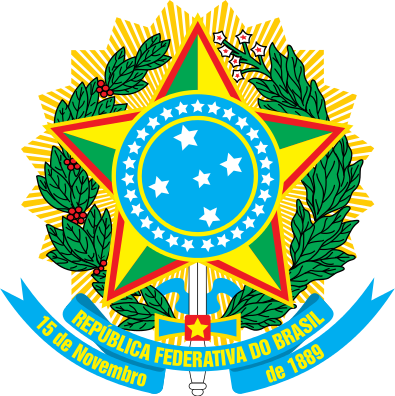Location
Following more than three centuries under Portuguese rule, Brazil gained its independence in 1822, maintaining a monarchical system of government until the abolition of slavery in 1888 and the subsequent proclamation of a republic by the military in 1889. Brazilian coffee exporters politically dominated the country until populist leader Getulio VARGAS rose to power in 1930. By far the largest and most populous country in South America, Brazil underwent more than a half century of populist and military government until 1985, when the military regime peacefully ceded power to civilian rulers. Brazil continues to pursue industrial and agricultural growth and development of its interior. Having successfully weathered a period of global financial difficulty in the late 20th century, Brazil was seen as one of the world’s strongest emerging markets and a contributor to global growth. The awarding of the 2014 FIFA World Cup and 2016 Summer Olympic Games, the first ever to be held in South America, was seen as symbolic of the country’s rise. However, since about 2013, Brazil has been plagued by a shrinking economy, growing unemployment, and rising inflation. Political scandal resulted in the impeachment of President Dilma ROUSSEFF in May 2016, a conviction that was upheld by the Senate in August 2016; her vice president, Michel TEMER, will serve as president until 2018, completing her second term.
Brazil is a federal presidential republic.
Source: CIA World Factbook
Members:
Resources
Displaying 56 - 60 of 180Complementary Law No. 125 instituting the Superintendence for Northeast Development - SUDENE.
This Law, composed of eight chapters divided in 24 articles, institutes the Superintendence for Northeast Development – SUDENE, with the view of promoting sustainable development of the area and its integration in the production system. The Law defines its composition, legal nature, objectives, implementation areas. Main tools envisaged for SUDENE action include a Regional Development Plan and dedicated Development Funds (namely FNE and FDNE).
Implemented by: Decree No. 9.309 regulating Law No. 11.952 to regulate land tenure in rural areas. (2018-03-15)
Law No. 11.443 amending Act No. 4.504 of 1964 on rural real estates.
This Law, composed of two articles amends articles 95 and 96 of Act No. 4.504 regulating rights and obligations regarding rural real estates in order to implement the Agricultural Reform and to promote the Agricultural Policy.
Amends: Act No. 4.504 regulating rights and obligations regarding rural real estates in order to implement the Agricultural Reform and to promote the Agricultural Policy. (1964-11-30)
Decree of 1 June 2004 declaring of social interest, for the purposes of the agrarian reform, some properties in Piaui State.
This Decree, composed of 4 articles, declares of social interest, for the purposes of the agrarian reform, the following rural properties in the State of Piaui: "Fazenda São Caetano", in the Municipality of Caraúbas do Piauí; "Limaza", in the Municipality of Palmeirais; "Serra de São Francisco", in the Municipality of São Miguel do Tapuio; "Lages", in the Municipality of Beneditinos; "Feijão, Piedade e Ginga de Fora", in the Municipality of Morro do Chapéu; "Bonfim, Genipapeiro, Santa Filomena, Santarém e Centro do Gastão", in the Municipality of Miguel Alves.
Decree of 27 October 2004 on native people administrative borders in the land Paraná do Arauató, Amazones State.
This Decree, composed of 2 articles, establishes the administrative borders of native people’s Mura group, located in Paraná do Arauató land, in the Municipality of Itacoatiara, Amazones State. This administrative zoning has been promoted by the National Indio Fountation, FUNAI, in compliance with Act No. 6.001 establishing native people Statute.
Implements: Act No. 6.001 establishing the native people Statute. (1973-12-19)
Implements: Decree No. 1.775 of 8 January 1996 ruling on the administrative procedures for zoning native people’s land. (1996-01-08)
Decree of 20 October 2004 declaring of social interest, for the purposes of the agrarian reform, some properties in Tocantins State.
This Decree, composed of 4 articles, declares of social interest, for the purposes of the agrarian reform, the following rural properties in Tocantins State:"Fazenda Marília", in the Municipality of Colméia; "Fazenda Jatobá", in the Municipality of Cristalândia; "Fazendas Orlândia, São Pedro e Araraquara", in the Municipality of Colméia. The Decree establishes the competence of the National Institute for the Agriculture Reform (INCRA) to promote and supervise the expropriation of the aforementioned rural lands.


